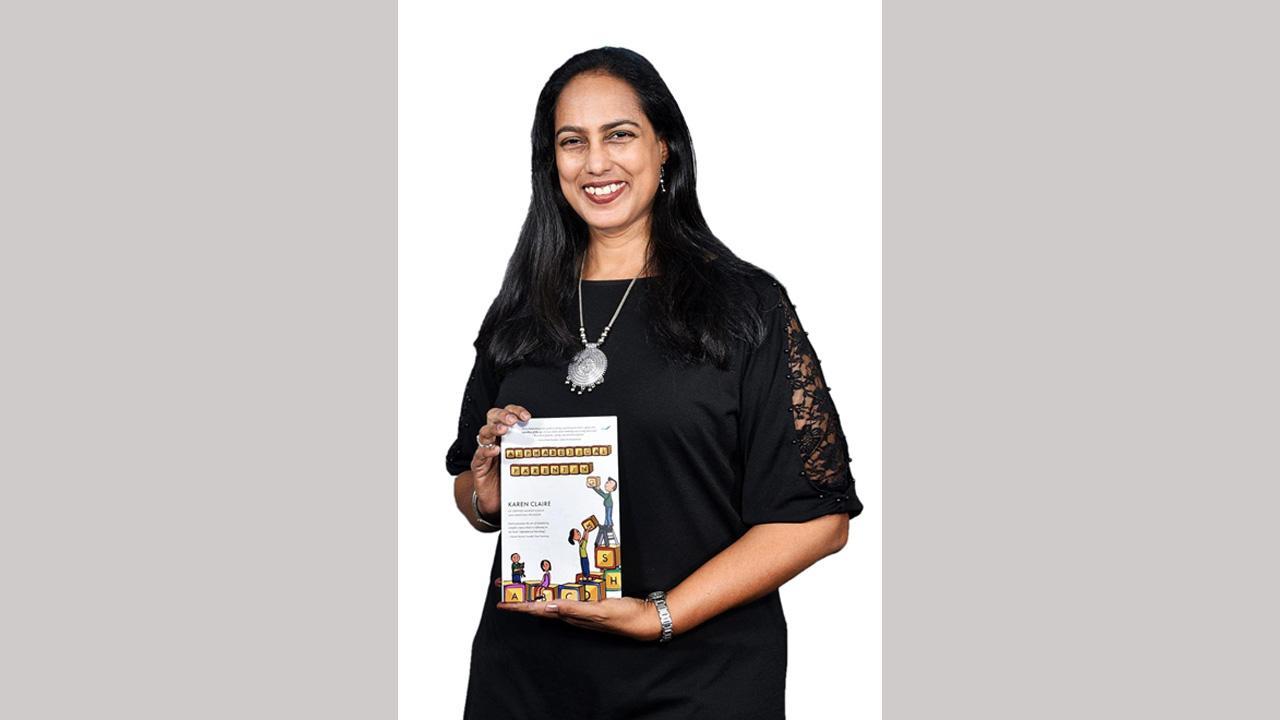Arts-based therapy practitioner, ICF-certified parenting coach and career guide, Karen Claire has spoken on the TEDx platform on the art of communication in parenting.

Karen Claire
ADVERTISEMENT
Her mission is to build empowered children by empowering parents through individual coaching and workshops and via social media. She spells out practical and effective parenting tools in ‘Alphabetical Parenting’. Here are the excerpts from her must-read book
As parents, we often ask questions. Yet, we never think of it as an art or skill to be learnt. We are the same parents who believe in soft-skills training in the corporate world. There are many soft skills required when it comes to raising a child. The art of communication is definitely one of them, the most specific niche being the art of questioning.
First, let’s question our intent: Do we ask questions to get an objective answer? Or do we ask questions to emphasise a point—our point?
Now, let’s question the kind of questions we ask:
- Are they closed-ended or open-ended?
- Are they obviously probing, making the child feel like they’re being court martialled? Or are they gentle enough to make the child feel safe to respond honestly?
- Are your questions making your child feel they are coming from a concerned loved one or from an interrogator?
Depending on our intent, do we choose to wait for a reply or not? We need to give our child enough time to collect their thoughts, articulate them, and then share.
- Did you ask too many questions in quick succession, so much so that your child has stopped thinking of answers? To him/her, now, it doesn’t matter because you have already jumped to the next question.
- Did you create a safe space before you shot out the question? Usually no one, not even an adult is comfortable answering questions if they don’t feel at ease first. You will definitely face resistance from your child.
You also need to time your questions well. Listen more than you speak. Your child will feel safer to share and you will learn more than when you ask directed questions at an inappropriate time and pause to listen to the answer.
The hardest skill I learned as a parent was to hold space for the answer. Sometimes, we are on a roll, and all charged. Perhaps, our child needs a little more time. Perhaps, our child will pause before giving an answer. At this point in time, we need to trust our child without giving into the temptation of believing that they are cooking up a lie or scheme. Allow them their time to breathe before they reply to you and before you can come back with another question.
Dear Parents,
You need to know. You need to ask questions to know. But these questions need to be directed with love and kindness. Your child loves talking to you. They love it when you listen to them. It is ideal that you ask an open-ended question and then follow up with questions based on their replies instead of pre-decided questions based on your own personal agenda in your mind.
If you entirely substitute the conversation with a series of questions, the communication cycle shifts off-balance, and there will be consequences that both parent and child face. You need to strike a balance.
There is one word of caution here—when you ask the question to your child, ask yourself if you are prepared for the answer that comes.
You see, I know a child-client who shared in course of the session, ‘My mum will say that I can tell her anything, but when she asks me anything and I tell her the truth, all hell breaks loose if she doesn’t approve.’
Questioning is an art and a skill that is often a lifeline in your relationship with your child. It can be developed.
Learn the art of asking questions. It is never too late.
Keep the faith,
Karen.
Reflections –
- Am I asking questions or am I questioning my child? (The difference lies in your intent.)
- Are my questions coming from my own biased assumptions, making the question itself biased?
- When I pose the question, am I ready to be a part of the solution?
- Am I being empathetic in the way I ask the question and listen to the response?
 Subscribe today by clicking the link and stay updated with the latest news!" Click here!
Subscribe today by clicking the link and stay updated with the latest news!" Click here!







